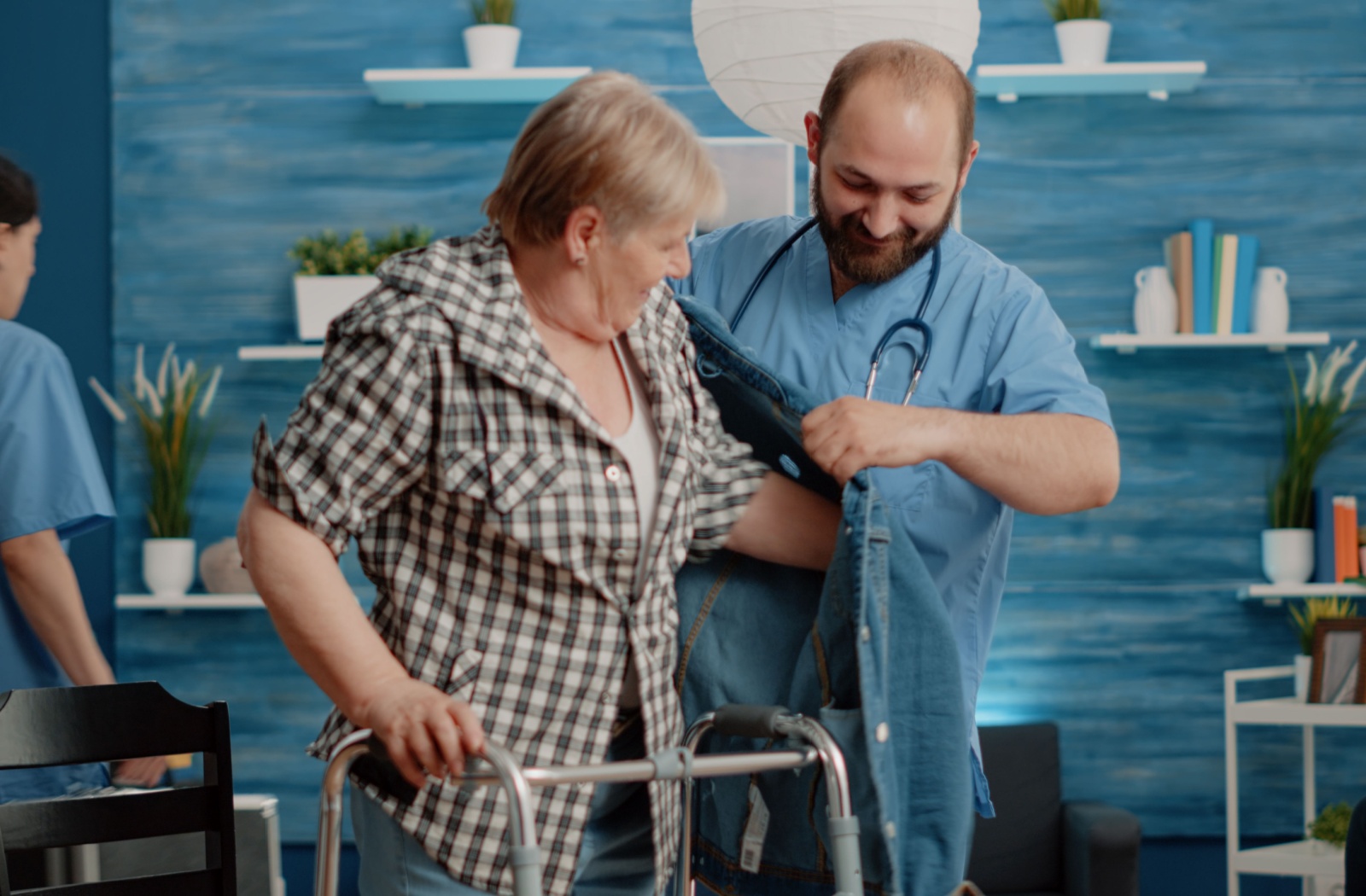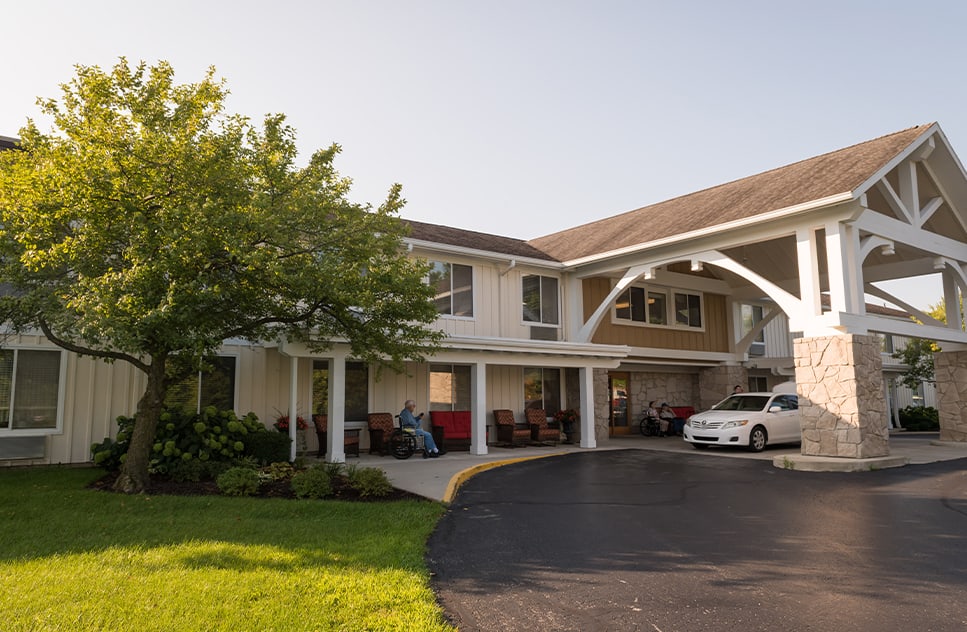Short-term care for seniors provides temporary support during recovery after surgery, illness, or hospitalization. It’s designed to help seniors regain strength and independence before returning home, offering medical, rehabilitative, and personal care services.
Whether your loved one needs assistance for a few days or a few weeks, short-term care can bridge the gap between hospital care and home life, ensuring a safe and smooth recovery.
Understanding what short-term care involves and when it’s needed can make a significant difference in the well-being of both seniors and their caregivers.
What Is Short-Term Care?
Short-term care provides temporary support and assistance to seniors. It can last from a few days to several weeks, depending on the individual’s needs.
This type of care is designed to help during recovery periods, transitions, or other short-term situations requiring added support.
Types of Short-Term Care for Seniors
There are various types of short-term care available to cater to different needs:
- Respite care – This offers caregivers a break while ensuring their loved ones receive professional care.
- Post-acute care – For seniors recovering from surgery or illness, offering medical and rehabilitation services.
- Transitional care – Support during the transition from hospital to home, ensuring safety and proper recovery.
Recovery After Surgery or Illness
Personalized Rehabilitation
After surgery or severe illness, seniors may need specialized rehabilitation to regain strength and independence. Short-term care communities offer tailored rehabilitation programs to speed up recovery.
Safe & Supervised Environment
A supervised environment ensures proper medication management and reduces the risk of complications. This setting is important for seniors needing close monitoring during their recovery phase.
Emotional Support
Recovery can be an emotionally taxing time. Short-term care communities provide emotional support and counseling to help seniors stay positive and motivated throughout their recovery.
Transitional Care Between Hospital & Home
Moving from hospital to home can be overwhelming. Short-term care communities offer transitional care to ensure a smooth and seamless shift, minimizing stress and confusion.
Comprehensive Discharge Planning
Discharge planning involves coordinating care plans, medication management, and follow-up appointments. This approach ensures that seniors continue receiving the necessary care even after leaving the hospital.
Family Training & Education
Short-term care communities often educate family members on providing proper care at home, ensuring they are well-equipped to support their loved ones once they return home.
Services Offered in Short-Term Care
Specialized Medical Care
Short-term care provides specialized medical care tailored to individual needs. Services may include wound care, pain management, and chronic disease management.
Physical & Occupational Therapy
Physical and occupational therapies are essential parts of rehabilitation. These therapies help seniors regain mobility, strength, and independence, enhancing their quality of life.
Speech Therapy
For seniors recovering from strokes or other conditions affecting speech, short-term care communities offer speech therapy to help them regain communication skills and confidence.
Personal Care & Daily Assistance

Assistance with Daily Activities
Short-term care communities offer assistance with daily activities such as:
- Bathing
- Dressing
- Grooming
- Meal preparation
This support ensures that seniors maintain their dignity and independence.
Medication Management
Proper medication management is important for recovery. Short-term care communities have trained staff to administer medications accurately and monitor any side effects, ensuring the safety and well-being of seniors.
Social & Recreational Activities
Engaging in social and recreational activities can significantly impact seniors’ mental and emotional well-being.
Short-term care communities offer various activities to keep seniors active, entertained, and socially connected.
Reducing Caregiver Stress & Burnout
Respite for Family Caregivers
Caring for a loved one can be physically and emotionally demanding. Short-term care offers respite for family caregivers, allowing them to rest and recharge while ensuring their loved ones receive professional care.
Peace of Mind
Knowing that their loved ones are in a safe and supportive environment provides family caregivers with peace of mind. This allows them to focus on their well-being, reducing stress and preventing burnout.
Support & Counseling
Many short-term care communities offer support and counseling services for family caregivers, helping them manage the emotional challenges of caregiving and providing them with valuable resources and strategies.
Choosing a Short-Term Care Community
When selecting a short-term care community, consider factors such as location, services offered, and available amenities. Choose a community that aligns with your loved one’s specific needs and preferences.
Questions to Ask When Visiting Communities
- What types of services and therapies are offered?
- What is the staff-to-resident ratio?
- Are there opportunities for social and recreational activities?
- How is medication management handled?
- Is there a comprehensive care plan in place?
Short-term care for seniors offers invaluable support during recovery, transitions, and other short-term needs.
Short-Term Care at Kingston Healthcare in Fort Wayne
Whether it’s for recovery after surgery, transitional care, or reducing caregiver stress, short-term care can provide the necessary support and peace of mind.
If you’re considering short-term care for a loved one, don’t hesitate to contact the team at Kingston Residence of Fort Wayne for short-term care, and Kingston Care Center of Fort Wayne for skilled nursing and rehabilitation. We can help answer any questions you may have.






